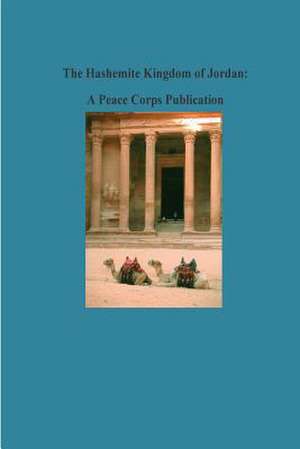The Hashemite Kingdom of Jordan
Autor Peace Corpsen Limba Engleză Paperback
Preț: 81.91 lei
Nou
Puncte Express: 123
Preț estimativ în valută:
15.68€ • 16.19$ • 13.05£
15.68€ • 16.19$ • 13.05£
Carte disponibilă
Livrare economică 05-19 martie
Preluare comenzi: 021 569.72.76
Specificații
ISBN-13: 9781502412232
ISBN-10: 1502412233
Pagini: 76
Dimensiuni: 152 x 229 x 4 mm
Greutate: 0.11 kg
Editura: CREATESPACE
ISBN-10: 1502412233
Pagini: 76
Dimensiuni: 152 x 229 x 4 mm
Greutate: 0.11 kg
Editura: CREATESPACE
